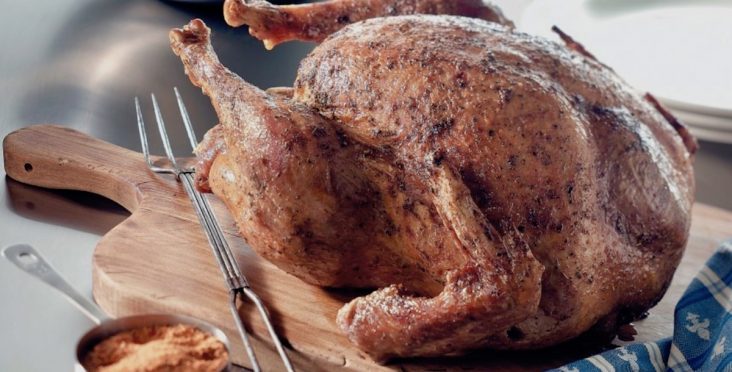Turkey production decline could impact holiday season
by August 26, 2021 4:05 pm 914 views

Holiday dinners later this year might be impacted by a decline in turkey production due to several factors, according to James Mitchell, extension agricultural economist for the University of Arkansas System Division of Agriculture.
Mitchell said factors related to COVID-19 are expected to affect the price and availability of whole turkeys and other poultry products this holiday season.
“The first is overall turkey production,” Mitchell said.
The U.S. Department of Agriculture (USDA) is forecasting a 1.5% decline in turkey production from 2020, falling by 84 million pounds. The decline, coupled with gradually shrinking cold storage inventories, has led to a 13% rise in the cost of frozen whole hens, averaging about $1.16 a pound
The decline in production occurred when the COVID-19 pandemic was reaching all-time highs in terms of infections and deaths following the 2020 holiday season.
“Much of this reduction came during the first half of the year,” Mitchell said. “In many ways, it was a spillover effect from the struggles the industry experienced during the pandemic in 2020.”
As the COVID-19 pandemic raced across the U.S. in March of 2020, many businesses shuttered, laid off non-essential employees or tasked employees to work remotely when possible. In industries such as agriculture, where remote work is often unfeasible, production sometimes slowed to a crawl as COVID infections caused facilities to close temporarily. This led to significant bottlenecks in timber, poultry and beef production, among other sectors.
“To finish out 2021, USDA is forecasting only fractionally lower production during the fourth quarter of the year,” Mitchell said. “So, the general outlook is to see fewer total pounds available this year. For me, it’s still difficult to say how noticeable this decline in supply will be at the grocery store come holiday season.”
There are other factors influencing the production and pricing of turkey.
Transportation costs have risen with higher fuel prices and infrastructure issues, such as the closure of the I-40 bridge over Memphis. Pre-pandemic, a Cargill plant closure in Texas reduced production of turkey products. Higher grain costs have also affected price and production.
In 2019, Arkansas produced about 576 million pounds of turkey, at a value of more than $333 million to the state.
Mitchell said the nature of meat and poultry processing in the age of COVID could mean reduced availability of specific products, such as lighter weight fresh turkeys and value-added products such as breast meat.
But labor remains a challenging variable with employers deploying tactics that include higher wages and incentives to get vaccinated.
“The labor problem is both COVID-19 induced and follows the trend of an aging and declining rural population where these processing plants are located,” Mitchell said. “Throughout the pandemic, the cost of production for meat processing has been significantly higher. This shouldn’t be a surprise by now. Think of the significant investments that processors have had to make to keep workers safe and plants operating.”
“Does this mean that consumers will be squeezed this holiday season? My reaction is, not as much as some headlines might suggest,” he said. “Retail grocery stores are in the business of moving products, and they will continue to do that through features and deals like buy-one-get-one, and so on.”
While 14 lb. and 16 lb. turkeys — the most popular sizes sold in retail groceries in the United States — may become noticeably more expensive and somewhat less available, prices in parted-out birds are already significantly higher. Since April, wholesale breast prices have increased 73%, Mitchell said.
Mitchell said these kinds of price and availability challenges are likely to affect more than the prized holiday birds this season.
“These issues are not unique to turkey,” he said. “We have seen similar issues with boneless hams and value-added pork. Some proactive planning from our holiday cooks is probably warranted.”
Arkansas is one of the top poultry producing states each year. The most common poultry in Arkansas are chickens and turkeys. Chickens that are raised for meat are called broilers, and chickens raised for their eggs are laying hens.
Arkansas is home to numerous poultry companies and businesses that support poultry companies and poultry farmers. Most Arkansas chicken and poultry farmers grow birds on contract for poultry companies such as Tyson Foods or Peco Foods, according to the Arkansas Farm Bureau. Butterball is a turkey processing operator with plants and farmers in the state.
The Natural State ranks second in broiler production with 7.42 billion pounds produced with a value of $3.6 billion, according to the USDA. The broiler industry generated $28.3 billion in the U.S. during 2019.
